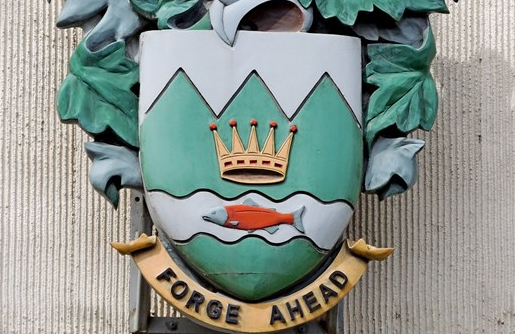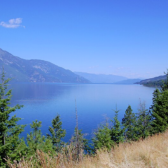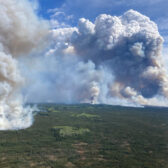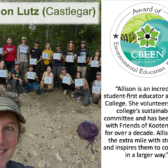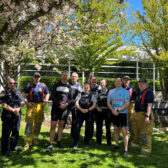Update: Parks Bylaw amendment sparks debate on municipal mandate
A bylaw amendment to prohibit controlled substance use from city parks finally passed into law, but not without some debate and opposition.
On Tuesday night during a special meeting City council passed the Parks Bylaw amendment, but the lines between the mandate of the municipality and the purview of the Provincial government were crossed.
Nearly half of City council did not support the amendment based on the premise that it did not address the societal issue affecting street culture, and the areas of the city it would prohibit controlled substance use were not where the problem resided.
Coun. Leslie Payne felt the amendment was made in haste.
“It is important to recognize that enforcement activities, even if they are in an educational nature, can drive people to use drugs alone and can elevate the risk of death,” she said. “So, without additional harm reduction measures or services, I do not support this bylaw.”
The City should do something to deal with the problem, added Coun. Jesse Peneiro, and the bylaw amendment was not that something.
“Any sort of solution that we put forward that does not address the reasons why people are addicted to drugs I think has a very good chance of being ineffective,” he said. “I feel we have the opportunity to put forward the best solution that we physically can.”
He called for the City to pursue a safe inhalation site, find funding for street outreach so they could have an extra person, and at the same time put a cap on short-term rentals so there would be less of them and open up more affordable places to live in Nelson.
“(T)hat’s an encompassing approach that deals with some of the background problem,” he said.
Four of the seven members of City council did vote for the amendment, however, meaning it was adopted “for the protection and enhancement of the well-being of the community” by prohibiting the public consumption of controlled substances in City parks.
Now that the bylaw is adopted, social service agencies, the Nelson City Police, Nelson and District Chamber of Commerce and the Interior Health Authority will be notified.
Ongoing work
The City is looking at the issue of the inhalation site in Nelson, said Mayor Janice Morrison, and was still working on housing as a main issue.
“We are continuing to work hard on some of the societal issues that continue to hit Nelson,” she said.
The City needed a staff portfolio that was dedicated to the societal and street issues in Nelson, said Coun. Keith Page, and lobby the Province to provide funding and services to do so. The parks amendment was not necessary in light of that, he explained.
“I think we are aiming for a problem and we don’t really have a clear sight of what we are going to have an impact on, because the consumption that is happening is happening on the streets, it is happening in the commercial district,” he said. “There is a piece around this on the Scouts Hall which will be the most impactful, but I really struggle to see how the rest of it will.”
The City did have one staff member that dealt with the topics Page raised, said Morrison, but he also holds other roles.
should be reaching out to us and they should be telling us ‘Here is our OPS strategy.’”
Parks amendment
“The use of illicit drugs in parks is likely to interfere with the public’s use and enjoyment of parks, and in particular is likely to disrupt recreational and other leisure activities, disturb the peace, comfort and enjoyment of people using the park in their leisure time, and result in unsettling behavior which causes some members of the public to leave or avoid the park,” wrote legislative coordinator Sonya Martineau in her report to council on Tuesday.
Decriminalization does not apply to elementary and secondary schools, and licensed childcare facilities, or airports, and on Canadian Coast Guard vessels and helicopters.
The Province has put in place the ability for municipal governments to govern where controlled substances may be used, wrote Martineau, allowing municipalities to set reasonable limits on drug use in certain public spaces.
“(T)he Ministry of Mental Health and Addictions has commented that local governments have regulatory tools to address issues related to public substance use, such as nuisance bylaws,” she said, adding that the B.C. Ministry of Public Safety and Solicitor General is undertaking policy work to support possible Fall 2023 legislation to regulate the use of drugs in certain public spaces.
“Therefore, staff feel it is also reasonable for the City to regulate public nuisance issues by prohibiting drug use in some public spaces, particularly in certain areas of City parks frequently used by children. Staff are looking to find a balanced approach to address the challenge of public consumption of illicit substances by focusing on high exposure areas,” she said.
This is a bylaw that does seek to solve a particular problem, explained Coun. Rik Logtenberg, and there has been drug use in City parks (Lakeside), along with problematic drug use and disturbances at the Civic Centre and Scouts Hall.
“There are specific challenges that need to be addressed and this bylaw takes us a step towards addressing those,” he said. “I do agree that this is only a part of larger set of solutions that need to be brought forward, including finding a location for an OPS (overdose prevention site).
“I want to stress that we are not going to solve opioid addictions; I don’t think there is any evidence that this is a solvable problem. It is a problem that needs to be managed and hopefully — when those who are suffering in the throes of these terrible addictions — can hopefully find a path to begin the journey out of the addiction.
“But as a society we need to accept that society needs to go on, and when you are dealing with .2 per cent of the population that is creating challenges for the rest of the population, we have to come up with a solution.
“The problem needs to be managed as much from the rest of society as it does from the perspective of the addicts. And for the rest of society that means living in neighbourhoods and having parks and playgrounds that they feel comfortable and safe and their children can thrive in.
“Because if we don’t work toward their interests as well, then we will see (more of) what has been happening, which is a backlash against these initiatives. So people who were supporting decriminalization are now against it, and are actively against it because of their experiences in their neighbourhoods.
“If we continue to ignore the concerns of people in the community who are dealing with a lot of the effects of the addiction, they are going to continue to become more against any positive initiatives that we are going to undertake.”
Off limits
The Parks Bylaw amendment (Public Nuisance) adds the definition of illicit drugs and then sets out the parks where the use of illicit drugs is prohibited.
The locations were selected as they are the park spaces most used by children on a regular basis for recreational and other leisure activities.
The bylaw does not prohibit use of illicit drugs in all park spaces in the City.
The parks covered by the bylaw include:
- Gyro Park and Municipal Campground;
- Cottonwood Park;
- Rosemont Park;
- Lakeside Park, except land adjacent to Duck Bay;
- Hall Street Pier;
- Hall Street Plaza;
- Civic Centre;
- Nelson and District Community Complex (NDCC);
- Queen Elizabeth Park;
- Scout Hall (10 metre radius);
- Chatham Street Park; and
- Lions Park.



